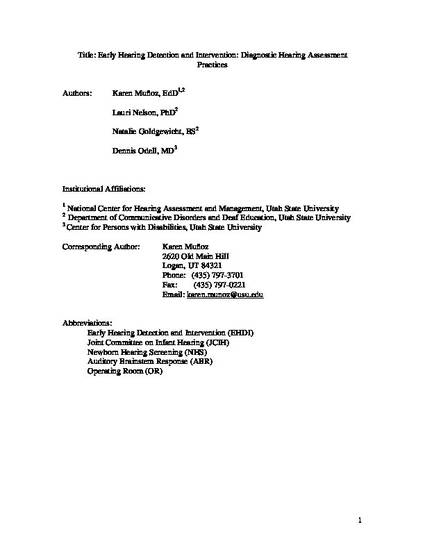
Purpose
To gain an understanding of practice patterns for infant diagnostic hearing services at pediatric audiology facilities. Method
The authors used a cross-sectional survey design. From August to November of 2009, surveys were mailed to 1,091 facilities in 28 states and the District of Columbia. One survey was completed per facility, and responses were anonymous. Results
The return rate was 33% (356 surveys). The results revealed that the comprehensiveness of the test batteries used varied among facilities. Over half of the respondents, 146 (55%), reported using a limited test battery, 94 facilities reported using a comprehensive test battery but lacked at least 1 component recommended by the Joint Committee on Infant Hearing, and 25 facilities reported using a test battery that met Joint Committee on Infant Hearing recommendations. The wait time for an appointment varied between facilities (range = 3 days–5 months) and was affected by the test condition (i.e., natural sleep, sedation, or operating room). Conclusions
The results suggest that it is difficult for stakeholders to identify pediatric audiology facilities that serve infants less than 6 months of age and that there is variability among facilities in test batteries and wait times for an appointment. Implications exist for diagnostic accuracy and timeliness of diagnosis.
